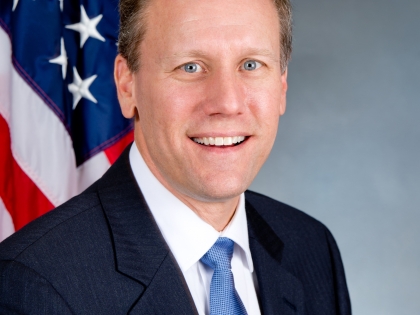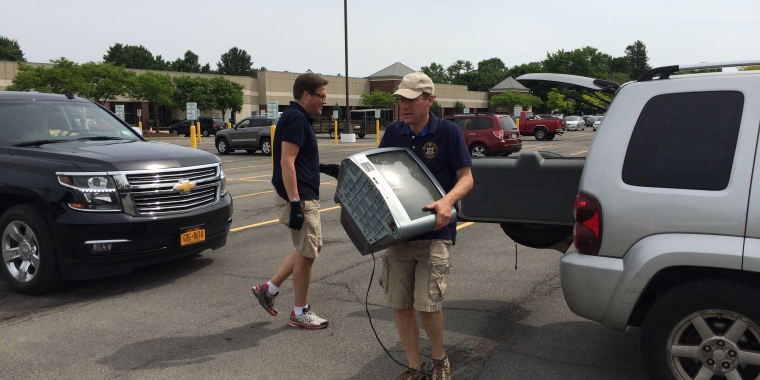
Senate Passes Valesky-Sponsored Elder Financial Abuse Legislation
David J. Valesky
June 12, 2014
-
ISSUE:
- Aging
- Families
- Consumer Protection
- Crime
- Victims
Legislation sponsored by Senator David J. Valesky (D-Oneida) protecting seniors from financial abuse passed the Senate today.
Sen. Valesky, chair of the Senate Aging Committee, released a report on May 6 that shows financial abuse amongst New York's seniors to be more prevalent than initially thought, with much higher rates of undocumented incidents that actually exist. Data obtained by the New York State Office of Children and Family Services project a surge in the number of cases of financial abuse by the year 2030, with nearly 200,000 incidents predicted to occur.
In order to combat these rising trends and to protect even more elderly individuals from becoming future victims themselves, Sen. Valesky proposed legislation that will, among other things: authorize banks to refuse suspicious transactions; expand the definition of “caregiver;” and allow a prosecutor to obtain medical records under certain circumstances.
“We are seeing increasing incidences of elder abuse, and we must do all we can to stop this disturbing trend,” Sen. Valesky said. “These bills will establish new protections for our elderly citizens and give law enforcement officials additional tools to pursue and prosecute those who would take advantage of and harm adults who are unable to protect themselves.”
“Vera House is so grateful for the work Senator Valesky is doing to advance legislation to protect vulnerable adults – and quite appropriate to be doing this as we near World Elder Abuse Awareness Day on June 15th. Elder abuse, neglect and financial exploitation are growing problems, and are best addressed with community collaboration. The proposed legislation makes it easier for financial institutions, social service agencies, law enforcement and prosecutors to pursue these cases, reduce financial losses and protect seniors in our community,” said Randi Bregman, Executive Director, Vera House.
The bills include:
- S.6221, which authorizes banks to refuse any transaction of moneys if the banking institution, social services official, or law enforcement agency reasonably believes that financial exploitation of a vulnerable adult has occurred or may occur.
- S.2951, which expands the definition of “caregiver” under the penal law to include a person who voluntarily, or otherwise by operation of law (such as an appointed guardian or power of attorney), assumes responsibility of an elderly person so that they would be tried under the “endangering the welfare of a vulnerable elderly person” law.
- S.7179, which proposes to allow a prosecutor to obtain medical records, without a privilege waiver, with a subpoena, endorsed by the court, based upon a showing that the patient suffers from a mental disability, and that the patient has been a victim of a crime.
Financial elder abuse manifests itself in many ways. Often, the perpetrators are family members of or have a close relationship with the victim, who may depend on them for care, depressing the number of reported cases. If you or anyone you suspect may be a victim of abuse, you should contact the authorities, or call Vera House’s 24-hour crisis hotline at 315-468-3260.
Share this Article or Press Release
Newsroom
Go to NewsroomSen. Valesky’s Sixth Annual Free Senior Fair is October 19 in Madison County
September 25, 2018
Harmful Algal Blooms: What to Know, How to Report
June 29, 2018

Stephen M. Kinne, MD (Ret.)
May 15, 2018

